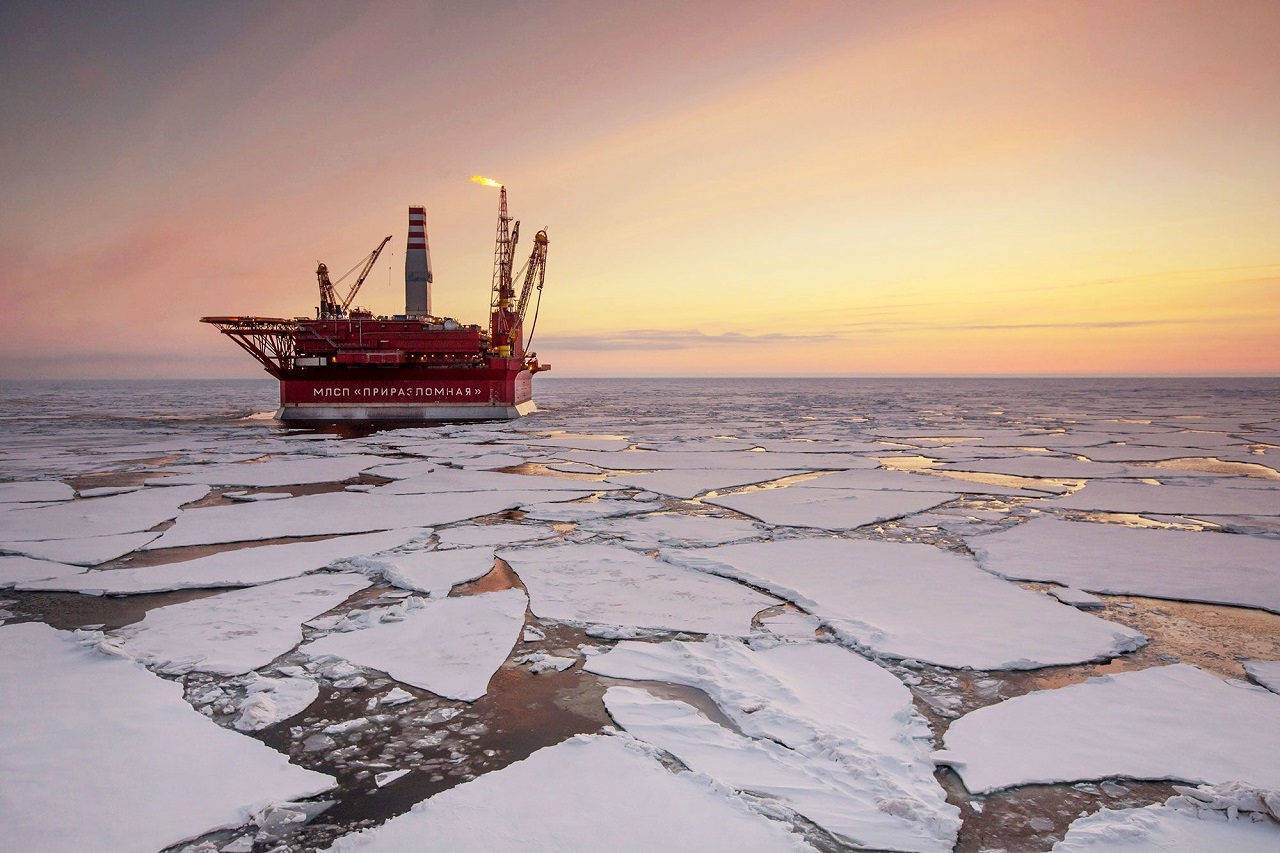As China chips away at its global expansion in the endeavor to become a superpower – even carving a foothold in the Arctic – and Russia builds upon its military capacity in the frigid region, the Trump administration is developing a defense plan to fight back.
The strategy, according to Pentagon spokesman Johnny Michael, will detail how the Department of Defense (DOD) “can best defend the U.S. national interests and support security and stability in the Arctic,” in line with the announcement last year of a new defense strategy that would put a military focus on the “great-power competition” with Russia and China as opposed to a worldwide counter-terrorism focal point. Both Russia and China have, in recent times, increased their military presence in the once hushed pocket of earth’s northmost terrain. Russia has ramped up its fleet of icebreaker ships and revived military bases built during the Cold War era. Meanwhile, China, too, has sparked steep concern in some U.S. defense circles by last year proclaiming itself a “near-Arctic nation,” despite being geographically located nowhere near the Arctic Circle. In its 2018 first-ever Arctic Strategy, Beijing declared plans to create a “Polar Silk Road” – an inflation of its already controversial Belt and Road Initiative – for smooth transmission of Chinese products from Asia to Europe by sea, along with proposing to fund airports in Greenland that has been perceived as possible military utilization and exploring for oil and gas opportunities.
For many U.S. defense experts, an updated focus on the region can’t come soon enough. “The Arctic is changing faster than anywhere else in the world, losing older, long-term sea ice at a rapid rate. These changing environmental conditions are creating new access routes and new geostrategic opportunities,” Sherri Goodman, a senior fellow at the Woodrow Wilson International Center, told Fox News. “Russia’s aggressive actions in Ukraine and the Baltics are now occurring in the High North, against our Nordic allies. Russia is upgrading its military infrastructure in the Arctic. China is building a spider web of Polar Silk Road across the Arctic, strategically deploying its scientists across the region.”
The Polar Silk Road, said Malte Humpert, senior fellow and founder of The Arctic Institute, is part of China’s aim to develop or reinvigorate transportation and infrastructure corridors globally. Even though the region is and has been “remarkably stable,” “there is a general concern about the U.S. not having the assets necessary for domain awareness and to project its influence.” “One single icebreaker simply isn’t sufficient,” Humpert observed, referring to U.S capabilities. “Especially in contrast to Russia which operates more than a dozen heavy icebreakers, including six nuclear-powered icebreakers.”
In January, Secretary of State Mike Pompeo cautioned during a meeting with Icelandic Foreign Minister Gudlaugur Thor Thordarson that Russia and China seek “domination and control” in the area, stressing that “if America is not engaged, if we pull back, folks will fill the vacuum” and pose a risk to “freedom-loving nations like Iceland and America.” Sean McFate, foreign policy analyst and author of “The New Rules of War: Victory in the Age of Durable Disorder” also contended that not only will “China exploit natural resources and cause environmental damage to a pristine area on the planet,” but that the U.S needs an Arctic Strategy with Alaska’s security at the forefront. “Alaska will be the American frontline in any arctic showdown. A conflict will not look like a conventional war rather, Alaska will be a staging ground for air and sea operations. Also, it will be impacted economically by tensions in the region,” McFate said. “War has changed and we need to change with it.” He also highlighted that while the “National Arctic Strategy” is not new – Obama released a version in 2013 tied to climate change – the forthcoming Trump blueprint will likely shift priorities to “focus on Russia and China encroaching interest in the region.”“However, the new Arctic strategy needs to articulate U.S. national interests in the region beyond simply blunting Moscow and Beijing,” McFate said. “That would just be a reactionary strategy, which is no strategy.”
Furthermore, policy analysts have pointed to the gaping safety holes in the region, which require addressing. Stephanie Pezard, a political scientist at the RAND Corporation, underscored that due to the increase in ship traffic – even cruise ships – are now traversing though waters where they may not be sufficient means of rescue if needed. “In terms of security, a concern has been the increasing militarization by Russia with refurbished and brand new bases as well as new units and military assets deployed there,” she continued. “These military developments could simply have a defensive purpose, as Russia claims, but they also give Russia a better ability to fight in this region.”
Yet not all experts agree that the Arctic poses a significant threat and that drastic procedural changes are necessary. “U.S grand strategy should rationalize its foreign policy for today’s strategic challenges, not mistake other countries’ economic opportunities for threats to American security,” added Eugene Gholz, associate professor of political science at the University of Notre Dame. “A conflict in the Arctic would be very difficult, expensive and damaging for any and all participants. The kind of equipment necessary to project force there is very expensive, and repairs or medical attention for wounded are difficult to provide.”
The Pentagon is yet to announce a release date for the new Arctic Strategy.
Hollie MacKay, Fox News
Redazione
La redazione di Babilon è composta da giovani giornalisti, analisti e ricercatori attenti alle dinamiche mondiali. Il nostro obiettivo è rendere più comprensibile la geopolitica a tutti i tipi di lettori.
L’evoluzione dei sanitari a terra: design moderni e materiali innovativi per una scelta sempre più popolare
23 Dic 2024
Quando si parla di design di interni e arredamento sono tantissimi i fattori che entrano in gioco. Ciascuno di noi ha…
Se le questioni di genere dettano le agende di politica estera
19 Dic 2024
Il perseguimento di politiche identitarie da parte dell'establishment della politica estera occidentale sta portando a…
Dall’origine straniera all’icona americana: il fenomeno dello sport negli Usa
14 Mar 2024
Molti sport americani sono accomunati da un aspetto particolarmente curioso: raramente sono davvero nati sul suolo…
Roulette europea, francese o americana? Ecco un approfondimento
22 Set 2023
La roulette è un classico intramontabile dei casinò, amata da milioni di appassionati in tutto il mondo. Una delle…




